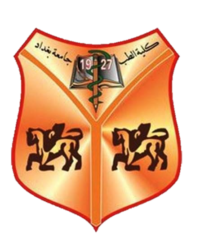Curriculum Description
This course description provides a necessary summary of the most important characteristics of the course and the expected learning outcomes for the student to achieve evidence of whether they made the most of the available learning opportunities. It must be linked to a description of the program.
General Description
- Name of Organization: Baghdad College of Medicine
- Department: Not specified
- Module Name: Democracy
- Course Pattern: Large Group Lectures
- Semester and Year: 2nd Year / Semester 1
- Total Course Hours: 20 theoretical hours plus 10 voluntary hours
Goal of the Course
- Studying the historical development of the concept of democracy in terms of its definition and dimensions, and the importance of democracy among privacy and universality.
- Study of the forms that democracy takes in practice.
- Definition of the concept of a party and the importance of party pluralism in a democratic system.
- Definition of the most important manifestations of semi-direct democracy.
- Study of the forms of the representative (parliamentary) system, and the characteristics of each system (council, presidential, and parliamentary).
- Defining the concept of election, the conditions for election, and the body and composition of voters, then analyzing the process of organizing the election and its systems.
- Well-known elections in the contemporary world.
Outcome of this Module
A. Cognitive and Theoretical Goals:
- Initial knowledge as a general culture of the importance of democracy as a system of government in political systems.
- Instilling democratic principles in the minds of students.
- Diagnosing the obstacles facing democratic systems.
- Encouraging students to participate in elections, freedom of expression, and respect for other opinions while practicing in life.
B. Skills:
- Supporting equality between women and men.
- Supporting civil society organizations and participating in educational workshops and medical volunteer campaigns.
- Encouraging students to have a spirit of boldness in analyzing what is published in the media about the mechanisms of implementing democratic systems.
Methods of Learning
- Large group lectures
Methods of Assessment
- Discussion between tutor and students
- Summative final Exam (written)
Values and Sentimental Goals
- Promoting the idea of the democratic system and its mechanisms among students.
- Developing students’ democratic behavior in dialogue, freedom of expression, and respect for other opinions in their relationship with society and with their patients.
General and Qualifying Skills
- Knowing the importance of the democratic system.
- Diagnosing the most prominent obstacles facing democratic systems.
- Educating students to adopt democratic practice by performing their role in society and as future doctors.
Infrastructure
Follow up on recent research and articles related to democratic practice in political systems published by professors and focus on stimulating students for research and study.
Course Books Required
- Human Rights, Children and Democracy, Ministry of Higher Education and Scientific Research 2009, prepared by a committee of authors
Main References (Sources)
- Mentioned in the lectures
Recommended Resources
- By Professor Dr. Shamran Hammadi, Political Systems
Electronic References
- INLE Iraqi Network Learning Environment
Course Development Plan
Follow up on recent research and articles related to democratic practice in political systems published by professors and focus on stimulating students for research and study.

